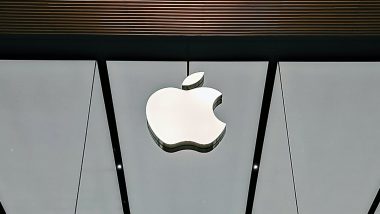Washington DC, February 8: Tech giant Apple has unveiled a new AI Image tool that lets users edit their pictures without even touching the editing software. According to The Verge, The MGIE model (MLLM-Guided Image Editing), which Apple worked on with the University of California, Santa Barbara, can crop, resize, flip, and add filters to images all through text prompts.
MGIF can be applied to simple and more complex image editing tasks like modifying specific objects in a photo to make them a different shape or come off brighter. The model blends two different uses of multimodal language models. First, it learns how to interpret user prompts. Then it "imagines" what the edit would look like (asking for a bluer sky in a photo becomes bumping up the brightness on the sky portion of an image, for example). AI in Healthcare: US Researchers To Leverage Artificial Intelligence To Diagnose ‘Lupus Nephritis’, Says Report.
"Instead of brief but ambiguous guidance, MGIE derives explicit visual-aware intention and leads to reasonable image editing. We conduct extensive studies from various editing aspects and demonstrate that our MGIE effectively improves performance while maintaining competitive efficiency. We also believe the MLLM-guided framework can contribute to future vision-and-language research," the researchers said in the paper, as per The Verge.
While some image generation platforms, like OpenAI's DALL-E 3, can perform simple photo editing tasks on pictures they create through text inputs. Photoshop creator Adobe, which most people turn to for image editing, also has its own AI editing model. Its Firefly AI model powers generative fill, which adds generated backgrounds to photos, reported The Verge. Google Starts New ‘Enhanced Fraud Protection’ Programme With Google Play Protect To Help Android Users Better Shield From Financial Fraud Attacks.
Apple has not been a big player in the generative AI space, unlike Microsoft, Meta, or Google, but Apple CEO Tim Cook has said the company wants to add more AI features to its devices this year, as per The Verge.













 Quickly
Quickly











